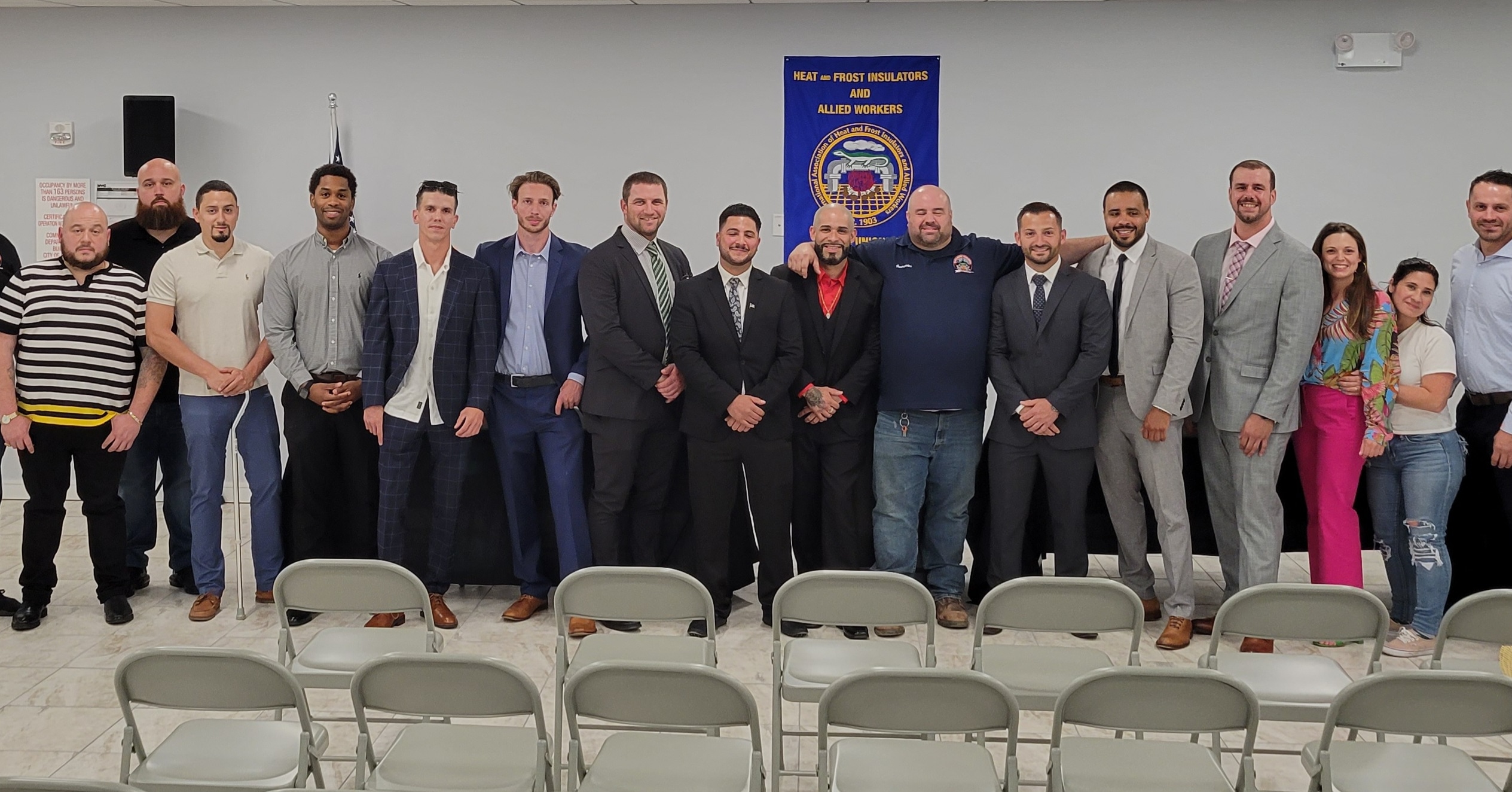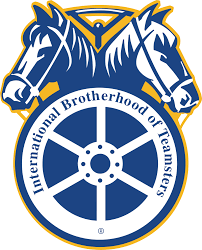New York, NY – Local 12 Heat and Frost Insulators, located in College Point, NY are part of the International Association of Heat and Frost Insulators and Allied Workers (HFIAW), the trade union located in the United States and Canada. The history of the trades joining forces goes back to 1903. Today, Mechanical Insulation, Firestopping, Infectious Disease Control, Asbestos and Lead Mitigation, Sound Attenuation, and Specialty Fabrication are the practiced trades of this union, and the workmen and women who employ their skills are truly essential workers.
LaborPress was privileged to speak with both John Jovic, Business Manager and Financial Secretary-Treasurer at Local 12, and Joe Rodgers, Apprentice Coordinator, shortly after the most recent Apprentice Graduation Ceremony, on June 1, 2023, to learn more about the graduation, and the trades at Local 12.
“The apprentice training program is a four-year program, requiring 1,000 hours per year, for a total of 4,000 hours,” says Jovic. “They specialize in Mechanical Insulation and Firestopping.”
Jovic says there’s diversity in age as far as the apprentices entering the program, and that approximately 10% come from other trades: “Some came from laborers, carpenters, etc., sometimes directly out of high school, – we have some people that worked in warehouses.”
Firestopping, like Asbestos and Lead Mitigation, are trades that save lives. When asked if he finds that regulatory laws are currently sufficiently in place to protect people and businesses in this regard, Jovic says, “It is my belief that there should be stricter regulations put in place – such as certifying contractors and making sure that installers have received the proper training. After all, it’s people’s lives that we’re talking about – you can’t put a price on someone’s life.”
Rodgers has been Apprentice Coordinator for seven years. This graduation was his eighth, and he says he has seen roughly 150 apprentices graduate from the program. Although this year there were 14 graduates, Rodgers says that the number is usually between 20 to 30. “The size of classes depends on how busy the industry is and how many leave the program.”
“An apprentice will learn all aspects of our trade while going through the apprenticeship,” he continues. “After their apprenticeship, they have the opportunity to come back to the training facility for continuing education for specialized systems and work. All of our signatory contractors work with basic insulation, but they specialize in different areas. So, depending on which contractor you are working for at the time will dictate what kind of insulation/firestop you are doing. Apprentices can work on any job, whether it’s commercial or industrial, as long as they are with a Journey worker. Our territory is the five boroughs of New York City and all of Long Island.”
LaborPress asked Rodgers what has changed in terms of the demographics of the apprentices over the years in terms of diversity. “The number of women and people of color have definitely risen in the last 7 years,” he replies. “We try to attend as many career fairs in inner city communities as well as work with direct entry programs. Some of the direct entry programs that we work with are Non-Traditional Employment for Women (NEW), Construction Skills and Pathway 2 Apprenticeship.”
Rodgers says that he would like every one of his apprentices when leaving the program to have the confidence to go on any jobsite and know that they can complete any job that is handed to them.” “From day one in the program the only ability we need them to have is dependability. We depend on them to show up to class on time and ready to learn/work. Their contractor depends on them to show up on time and ready to work as well as working hard and showing initiative.”
He’s also deeply invested in the success of the apprentice. Having gone through the program himself, he knows what’s involved, and is grateful for his own training. At the end of the day, “My reward for doing this job is seeing the growth in the apprentice from the day they walked into this program to the day they are being sworn in as a Journey-worker. I know the feeling of going through this apprentice program. I had the privilege of learning from some of the best Insulators out there and have appreciated everything that they taught me. My goal is to work as hard as I can as Coordinator to assure that I leave this training program better than I found it.”
Jovic, speaking about what he would say to those seeking a career in these trades, says, “It is a great opportunity to earn a good middle class living. The benefits are great – we have medical, a pension and annuity. I believe that hard work and dedication to your craft will provide for someone and their family. What people need to realize is that unions allow you to have a good retirement. Belonging to a union is having an extended family.”







